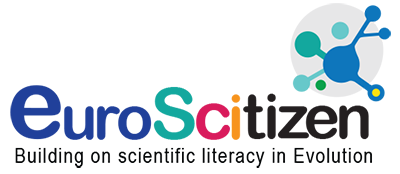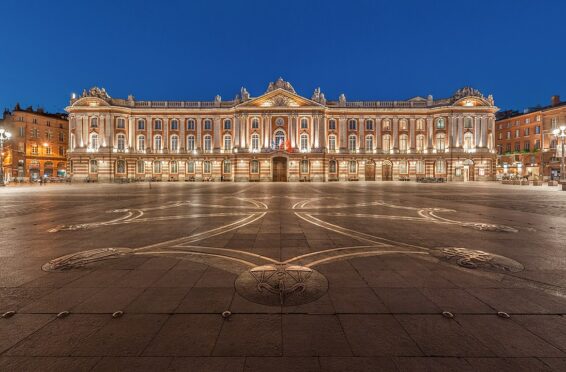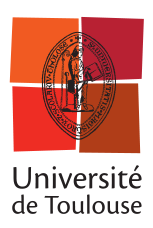(Canceled due to COVID-19)
EuroScitizen COST Action is organizing a Science-Media Training School directed at young journalists and young scientists. By joining these two groups we aim to improve the quality of the communication and understanding between scientists and media, thus to contribute to the increase of the quality of science communication.
Our goal is to create a new wave of effective communication between scientists and journalists to demonstrate that by working together, those groups have power to create meaningful, understandable and open science messages for the public. We hope to provide a foundation for developing efficient links between the scientific and media communities counteracting the increase in fake news, the plummeting quality of journalistic outputs, in this complex, constantly changing landscape of scientific evidence. In fact we believe that this will empower the society and raise science awareness among people because knowledge has the power to improve our surroundings and quality of life.
This Training School will offer you an extensive practice, conducted by a diverse and experienced trainers with scientific and media background. The Training School has three main objectives:
- Information sharing – to spread awareness across trainees who are interested in disseminating reliable scientific information in media, by providing them with skills and tools to communicate science effectively;
- Discussion – to exchange perspectives on topics from two different angles and two, not so different, attitudes represented by journalists and scientists, promoting the communication between these two groups;
- Community building – to help scientists and journalists find best ways of engaging in science communication together, bringing to it the best of the two worlds.
Similarly to the whole EuroScitizen Network – the training school will use evolution as one of the model scientific topics to work on. However, it will also extend its scope beyond evolutionary biology, exploring diverse ways science and media can interact, overcoming misunderstandings and tensions.
Join us in Toulouse! This is a great opportunity to meet international team of inspiring people with an open mind and the one common goal. We want to communicate better information and stories in a way that will help society to better understand facts, data and science!
The trainers
Gil Costa – scientific illustrator and designer, expert in producing compelling, visual messages that convey science in simple and intuitive ways (https://www.gilcosta.com)
Filipa Vala – science communicator and evolutionary biologist, curator of scientific exhibitions, journalist – and an example of a successful career shift from science to science communication (https://ce3c.ciencias.ulisboa.pt/member/filipa-vala)
Peter Hyldgård – journalist and science communicator, author and trainer of several successful science communication courses, teaching among other things the “critical journalism” to students. (https://videnskab.dk/author/author/1848)
Renata Pinto (invited speaker) – a PR specialist and communicator, specialized in the field of health-care, former journalist, extensive user of social media in targeted science communication (https://www.linkedin.com/in/renatapinto/?originalSubdomain=pt)
Sara Sá — Science and Health journalist at the Portuguese newsmagazine Visão, since the year 2000.
She has covered subjects such as Cancer, Climate Change, Genetics and Neurosciences. She is also a contributor to other publications in the editorial group Trus in News, such as Visão Júnior, Visão Saúde and Visão História. Her work has been distinguished by the LPCC (cancer journalism prize); Unesco and Apifarma. She is the co-author of the Popular Science book Cem Mitos Sem Lógica.
We will also engage local science communication specialists for a unique chance to debate and discuss the most important science-media issues during a round-table debate during the Training School.
Topics covered
- Finding best scientific stories – and working around them as scientists and journalists
- The science of science debate
- Recognising fake-news and pseudo-science, and fighting against it
- Parallels and differences between scientific and journalistic reference searching
- Visual storytelling
- Pitching the idea to editors – the point of view of scientists and journalists
Schedule
The event will take place from 8AM of 14th of April to 17PM of the 16th April 2020.
PRELIMINARY PROGRAM
Funding
Each trainee will receive a fixed grant to cover travel, accommodation and meal expenses. Please refer to the registration form for more details on the formal conditions of applying, and grant information.
In addition, School Organisers will provide all participants with free-of-charge lunches and coffee-breaks throughout the training, and a social gala dinner in a selected restaurant.
Who can apply?
We welcome both young journalists and young scientists to our training school.
Training is dedicated to students of journalism (on the last year of master’s studies or equally acceptable level) and science students (last year of master’s studies or equally acceptable level or every year of PhD studies).
Note that the trainees must be engaged in an official research programme as a student, a PhD student or postdoctoral fellow, or can be employed by, or affiliated to, an institution, organisation or legal entity which has within its remit a clear association with performing research.
Application
https://forms.gle/oGiTy6FyhFx1wYk57
Deadline for applications
Until the 20th of February 2020.
Accomodation
The trainees are free to select their accommodation, but a list of selected options will be distributed shortly after the registration has opened.
Organised by:

![]()
With the collaboration of:

